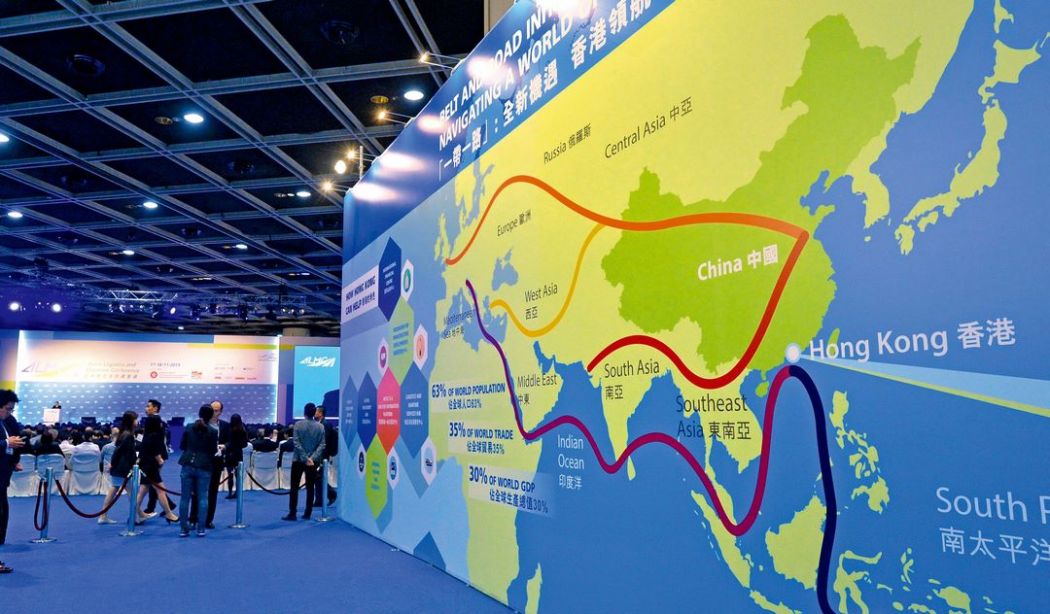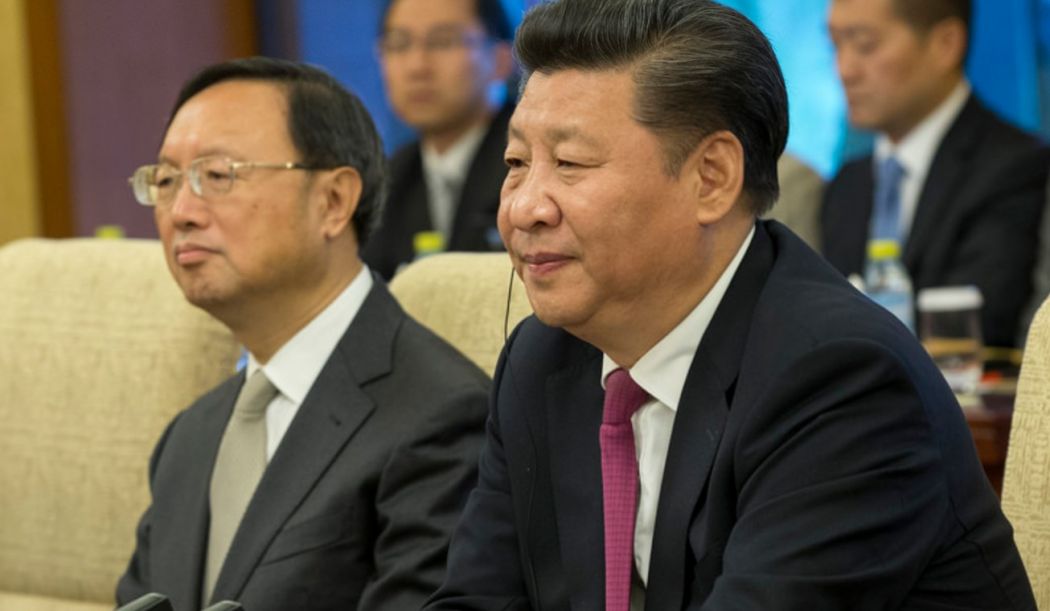Last week, Xi Jinping travelled to Europe and in Italy he was warmly welcomed by Deputy Prime Minister Luigi di Maio.
The 32-year-old politician is one of the leading figures of Italy’s Five Star Movement. This party, M5S in Italian shorthand, is a populist outfit that was once described to me as “the abomination that you get if Silvio Berlusconi, Antonio Gramsci and Joseph Grimaldi had a threesome.”
Berlusconi probably needs no introduction. The buffoonish leader of Forza Italia with his infamous bunga bunga parties put Italy on the map for all the wrong reasons.
Antonio Gramsci is perhaps less familiar if the reader is not steeped in the dark history of Marxism. Gramsci was an early admirer of the Soviet experiment who ran afoul of Italy’s fascists. An early saint of Marxist martyrdom, Gramsci is most famous for his ideas on cultural hegemony, understanding ‘soft power’ long before it became fashionable.
Despite having been told about Lenin’s construction of the first gulags and having access to first-hand testimony of persecutions of less orthodox comrades, Gramsci never wavered from his support for the Soviet Union’s brutal path to socialism.

He postulated that bourgeois institutions were too powerful to be overthrown by an outright worker’s revolution and needed “infiltration, subversion and co-option.”
The third, Joseph Grimaldi, was an English-born Italian clown from the first half of the nineteenth century. His slapstick routines made him a household name like Beppe Grillo, a modern clown and the founder of M5S.
Luigi di Maio, the clown’s apprentice, oversaw Italy signing on to China’s Belt and Road Initiative.
After the eternal emperor of China, President Xi Jinping, gave his imperial nod of approval for the highly symbolic memorandum of understanding, he was given a grand tour of the eternal city.
In return, Chinese and Italian companies signed deals worth 2.5 billion euros, including agreements for the investment bank Cassa Depositi e Prestiti to sell so-called Panda-bonds, allowing institutional and private investors to bet on Chinese growth using a highly regulated financial vehicle. Interest in these bonds is lukewarm at best for now.
Italy can now also cooperate with China’s Silk Road Fund on international investments and get preferential treatment to lure Chinese tourists, though most indicators suggest that the Chinese overseas tourism bonanza is levelling off.

China Communications Construction Company (CCCC) signed agreements with Trieste and Genoa ports that are most directly tied to the Belt and Road Initiative. These seem to be based on China’s earlier deals with the financially even more desperate government of Greece regarding the famous port of Piraeus.
Construction at that site has been slow, with the Chinese partners being stuck in the Greek approval process moving at a glacial pace.
The Roman educator Quintilian told his students in the first century A.D. that a good debater should be able to defend the thesis ‘Romans are better than Greeks’ on one day and the thesis ‘Greeks are better than Romans’ on the next. A modern Chinese government official will be torn between the theses ‘Greek bureaucracy is worse than Italian’ and ‘Italian bureaucracy is worse than Greek’.
Nevertheless, although Italy has a government apparatus as infamous as Greece and is just as debt-ridden and cash-starved, its economy is several times larger and it is a founding member of the European Union. It is also a member of the G7 of industrialised nations.
Why is it looking for Chinese help? The reasons have more to do with internal Italian politicking and European power dynamics than with economics and great power rivalry than most international observers have noticed.
However, there is already fallout from the move. The Italian government’s dealings with China have now undermined its credibility within the EU. Last February Italy abstained from a vote on an EU-wide investment-screening mechanism to ensure the security of Europe’s strategic sectors.

The biggest EU countries, Germany and France, had pushed the mechanism and diplomats from both countries expressed alarm over Italy’s abstention.
President Xi Jinping, cognizant of Gramsci’s ideas of ‘cultural hegemony’ and deeply rooted in nostalgia about China’s glorious past, was quick to point out the historical significance of his latest coup.
His message in an op-ed in Corriere della Sera was that the new Silk Road would finally mirror the old one. He missed no opportunity to point out that ‘a strategic pact with Italy’ goes back 2000 years, to the times of Ancient Rome. The eternal red emperor and the clown’s apprentice were merely restoring an ancient link, not creating new geopolitical headaches. Both Quintilian and Gramsci would be proud.
But after the rhetoric died down and the red carpets were rolled up again, the numbers on paper were not that impressive. The total value fell well short of the earlier reports suggesting up to 7 billion euros in deals were on the table.
While France refused to sign on to the BRI and had a much less grandiose welcome for Xi, it signed bigger deals in the end.
Luigi di Maio’s frenemy, Matteo Salvini of the nationalist Lega Nord, refused to attend the signing ceremony. He echoed the warnings of other foreign sceptics of Beijing’s generosity by saying he did not want the Chinese to ‘colonise’ Italy or catch it in a ‘debt-trap’.
Salvini is the other Deputy Prime Minister of Italy’s shaky coalition. ‘Before allowing someone to invest in the ports of Trieste or Genoa, I would think about it not once but a hundred times,’ Mr Salvini warned.
He must have been glad to see analyses of the deal in Italy’s newspapers becoming less cheerful within days. Di Maio, it was said, had sold out cheaply:
‘China bullied Italy with carrot and stick and in the end Di Maio grabbed a measly carrot,’ said Paola Subacchi, Professor of International Economics at Queen Mary University of London, on the Italian radio station RAI Uno.
Mr. Salvini was quick to advocate bigger government holdings in Italian companies through ‘golden shares’ to protect them against ‘Chinese infiltration’.
The lack of any big ticket agreements, other than the mixed blessing of the BRI memorandum of understanding itself, lead to a rather ridiculous news story about the first shipment of oranges by air from Sicily to China, which Di Maio told everyone was a ‘small revolution for Made in Italy’.

Selling oranges to mandarins is unlikely to calm down European allies, such as Germany. The German Foreign Minister, Heiko Maas, warned that ‘countries that believe they can do clever business with the Chinese will wonder when they suddenly wake up in dependency.’
He argued in Die Welt am Sonntag newspaper that short-term lucrative offers presented by China would soon leave a bitter aftertaste.
Di Maio is a euro-sceptic and unlikely to be moved by German warnings or even unfavourable comparisons with Emmanuel Macron, who also hosted President Xi, but presented the Eternal Emperor with a Triumvirate of himself, Angela Merkel and Jean-Claude Juncker, in a show of uncharacteristic European unity.
At home, however, his rather disappointing results from a deal that has left his country vulnerable and open to criticism is grist for Matteo Salvini’s mill. He is at least as euro-sceptic as his M5S government colleague, but his unwillingness to join any photo op with Xi Jinping will allow him to attack M5S as weak negotiators willing to sell out Italy and continue his game of ‘opposition within the government’.
Italy’s moment in the glorious sunshine of the Red Emperor of China might be short-lived. It could even help pave the way for a right-wing government, creating a whole different set of problems. Italian standing with its European partners has been hurt and the country’s embrace of Beijing was both unwise and unnecessary.
